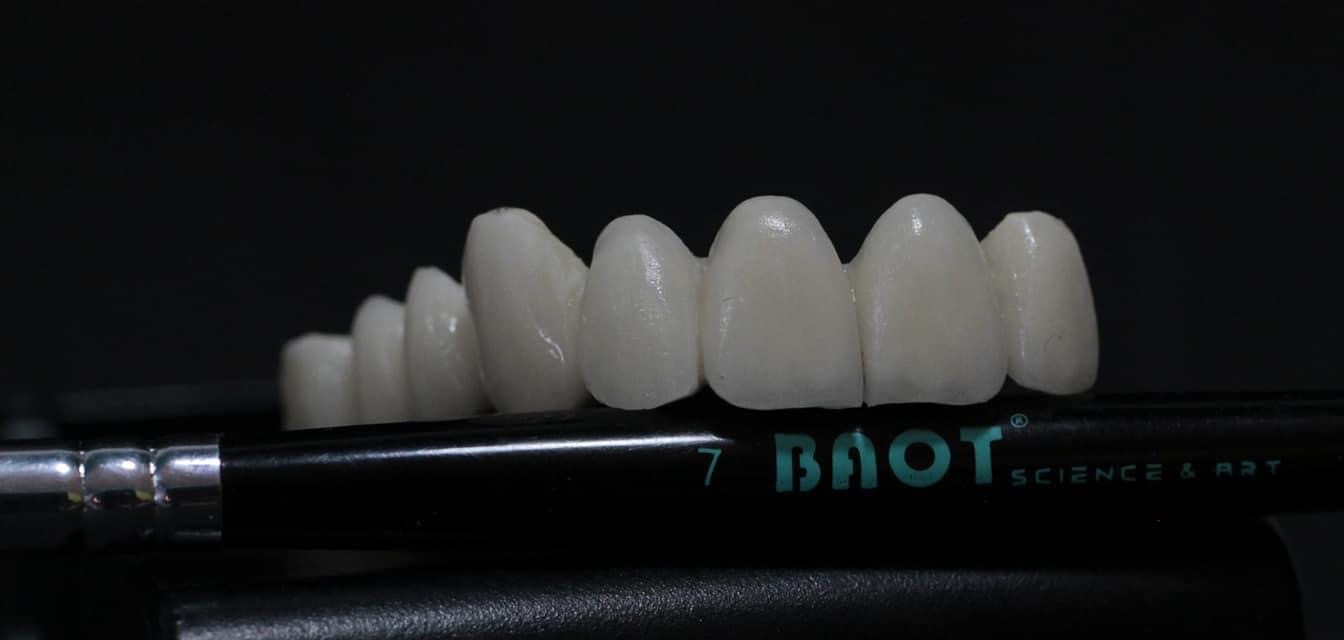-
Email : mike.zhang@baot.biz
Email : mike.zhang@baot.biz

What causes the problems of chipping, cracking, bubbles, etc.?
There have always been problems with dentures such as chipping, cracking, and bubbles among dental technicians. The main reason for these problems is that there is a problem with the bonding force of gold and porcelain.
The main factors that affect the bonding force of metal and ceramic are:
1. Originally, the expansion coefficients of metal and porcelain powder do not match. Generally speaking, under normal process operation, the expansion coefficient of porcelain powder is slightly smaller than the metal expansion coefficient and will not cause cracked porcelain.
2. Overcasting changes the molecular structure of the metal, vaporizes it and leaves too many impurities, which is an excessively thick oxide layer. The oxide layer helps the bonding, but too thick will affect the adhesion.
3. Excessive casting will produce blisters, and shrinkage holes and welding or non-welding will affect the bonding force.
4. Casting crucibles are not cleaned and replaced in time.
5. It is best to use tungsten steel for grinding, and alumina grinding heads for precious metals. Emery will have residual contamination metals.
6. Sandblasting and cleaning is also very important, especially sandblasting. Different metals use different particles of alumina sand, 100-120 mesh (the finer the better, the price depends on the company's wishes) 45-degree angle spray, 2-3 Pa pressure, not more than 3 Pa, too much will be embedded in the surface of the coronal, contaminating the metal, and will also perforate or short the edge.
7. The sintering temperature should not be too high, and the times should not be too many. If the sintering times are too many, the possibility of stretching the porcelain will also increase. Because the sintering times are too many, the crystal shape of the porcelain powder will change, which will become vitrified and the strength will decrease.
8. When OP is sintered, the initial temperature is too high or the furnace temperature when the tooth is placed is too high, which will make the surface of the OP dry quickly. The interior is thoroughly fully dried, because the OP is oily and volatilizes slowly, and it will also appear. Air bubbles affect binding.
If technicians and friends around are worried about chipping, cracking, bubbles, etc., please share this blog and let us improve together!
What technical problems do you want to know more about? Please leave us a message and see you next time.
Tags :